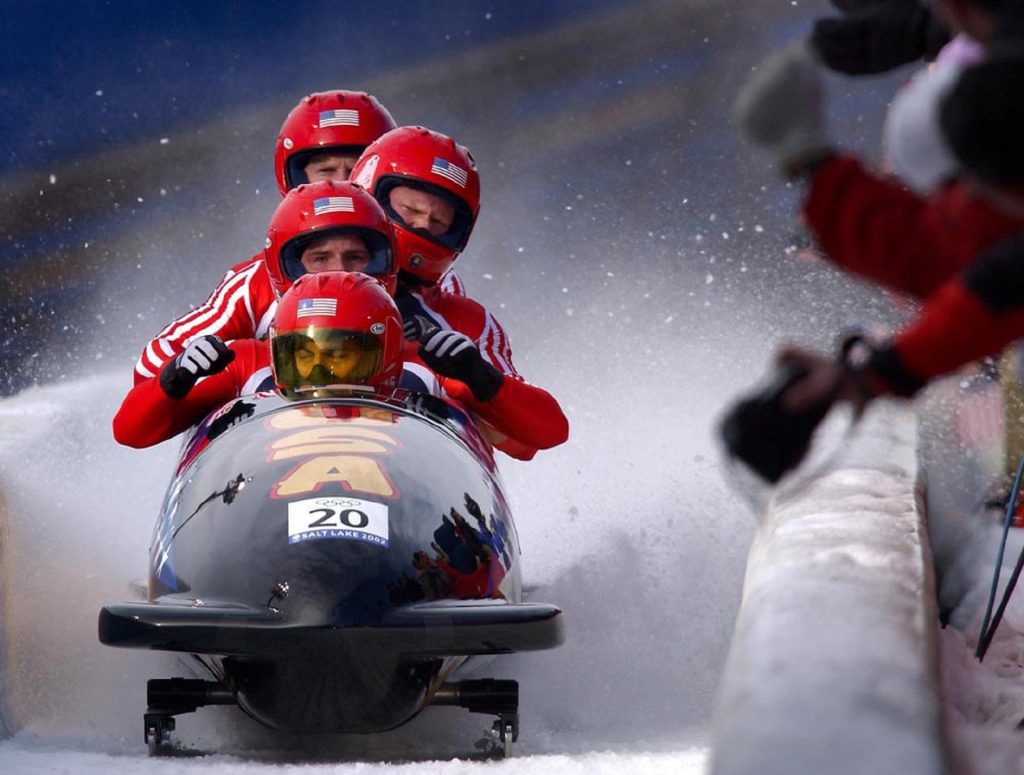Will The USA’s Diplomatic Boycott Of Beijing 2022 Trigger Any Action From Other Countries
December 7, 2021
Olympic Games adviser, Michael Pirrie, looks at where the Beijing diplomatic boycott announced by US President Biden is heading and what it means.
The Olympics Games provides the worlds biggest summer and winter sporting spectacles. The Olympic Games also constitutes the United Nations of sport – the largest gathering of world leaders and officials of Olympic nations outside the United Nations General Assembly in New York.
The Games is now more divided and less united following the decision by the United States for a diplomatic boycott of the Beijing Winter Games in less than two months.
“Announcing it [the boycott] heralds a significant shift in global sport and politics at the highest level, between the world’s two reigning superpowers.”
That division is expected to widen and expand in coming days and weeks and is likely to include pressure on business organisations partnering and sponsoring the Beijing Olympics, described by activists as “The Genocide Games.”
White House spokesperson Jen Psaki said the Biden administration would boycott the Games due to the “ongoing genocide and crimes against humanity” in Xinjiang.
A US diplomatic boycott enables athletes and teams to participate but is far more than symbolic. Announcing it heralds a significant shift in global sport and politics at the highest level, between the world’s two reigning superpowers.
The fallout may be set to involve more western nations and allies expected to announce a similar diplomatic freeze on attending the Beijing Winter Games.
It could potentially include many of the nations that declined to sign the traditional Olympic Truce that was presented by China at a recent UN General Assembly. Nations such as the United Kingdom, Canada, Australia are other Olympic nations where political support has been growing for the withdrawal of diplomats but not athletes.
The Olympic truce in principle suspends conflicts between nations participating at the Games, and the failure to obtain signatures from several Olympic nations at the UN assembly was ominous for China.
In a statement following the decision yesterday, the IOC said that “The presence of government officials and diplomats is a purely political decision for each government, which the IOC in its political neutrality fully respects. At the same time, this announcement also makes clear that the Olympic Games and the participation of the athletes are beyond politics, and we welcome this.”
President Biden led the US Olympic delegation as Vice President at the Vancouver 2010 Winter Olympics and believes sport can be a positive and unifying force. His country’s diplomatic boycott does enable US athletes to fully participate at the Games, and the US government has emphasised their support to all athletes taking part.
The Beijing boycott is limited at this stage and will not impact on the Olympic sport programme, but will cast a giant shadow over the Games, more so if other countries join the action.
While China plans to use the global spotlight of the Games to promote and legitimise controversial hardline communist party policies, the boycott places those policies further in the international spotlight.
The boycott, which is expected to expand, also shows that the geopolitics of world sport is changing and that the separation of sport and politics is no longer absolute.
“China’s quest to host mega sporting events has been central to the communist party’s domestic agenda and International image and relations.”
While the historic boycott of the 1980 Moscow Summer Games followed the Soviet Union’s invasion of Afghanistan, the Beijing boycott is directed at China’s possible invasion of Taiwan and a growing number of human rights abuses.
Sport and China’s quest to host mega sporting events has been central to the communist party’s domestic agenda and International image and relations.
A moratorium by foreign leaders and dignitaries at the Opening and Closing Ceremonies would disrupt Chinese government plans to celebrate Beijing’s historic hosting of both Winter and Summer Games as a world first and milestone for President Xi and communist party leaders.
More than 80 world leaders and heads of state attended the 2008 Summer Games, including U.S. President George W. Bush, who angered China before his arrival by criticising its rights record. Russian Prime Minister Vladimir Putin, a close ally of China, former Japanese Prime Minister Yasuo Fukuda, French President Nicolas Sarkozy, and United Kingdom Prime Minister Gordon Brown also attended.
“Momentum for boycott action has been building in the west over China’s human rights, highlighted most recently by the uncertain fate of Chinese tennis player Peng Shuai.”
China’s foreign ministry described the boycott as “a serious violation of the principle of political neutrality in sport established by the Olympic Charter”, and alluded to taking countermeasures against the US.
Momentum for boycott action has been building in the west over China’s human rights, highlighted most recently by the uncertain fate of Chinese tennis player Peng Shuai. The sudden disappearance of the three-time Olympian after posting allegations of sexual abuse against a former senior party official proved a tipping point.
The WTA last week stated they would be suspending all relations with China in a high-profile and very damaging case for the country, which has been strewn all over social media across the globe with some of the most high-profile tennis stars in the world showing support for her.
Meanwhile, the treatment of Olympic athletes who protest or speak out out while competing in Beijing remains unclear and may be discussed in an upcoming security summit between the Chinese and US leaders, along with the safety of Peng Shuai and related matters.


